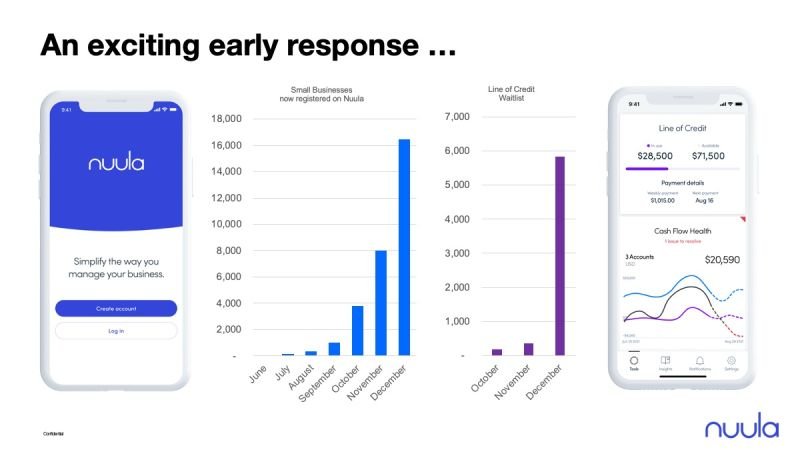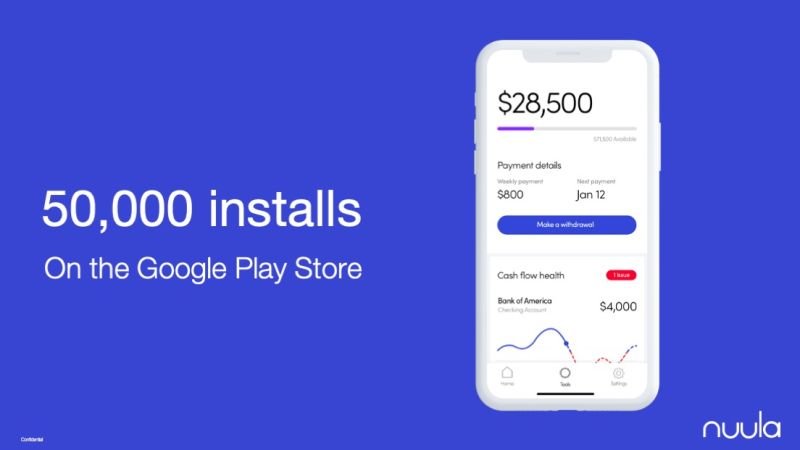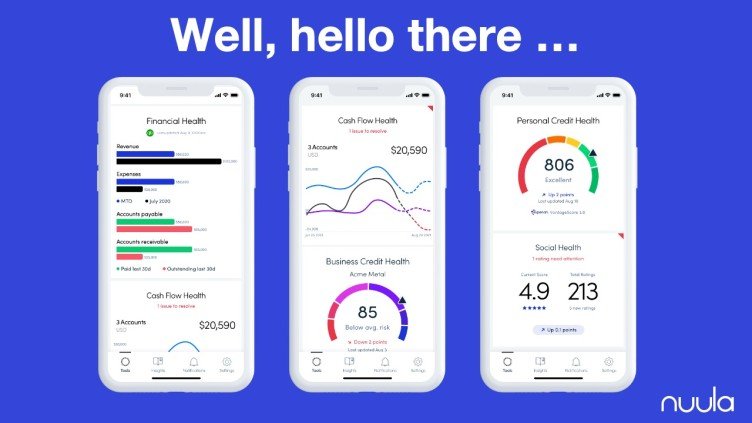How are you feeling at the moment?
I think entrepreneurs are a strange breed. My wife jokingly describes me as “pathologically optimistic, and pathologically forward looking” (she’s a therapist, so I am often finding myself diagnosed).
It may be true. As entrepreneurial CEOs, we do seem to be focused on opportunity, regardless of the conditions of the moment.
That doesn’t mean I am not a realist. I have been concerned about COVID-19 for some time, and have been trying to understand the potential implications for our nations, our economies, and the business I am charged with running.
A number of weeks ago I told my adult boys, who at the time were trying to get their heads wrapped around the extent and implications of the crisis, that the problem with exponentially driven issues is that it all seems OK until it is horribly not. I should have shorted the market.
So what does this all mean? For me, I’m now as increasingly focused on opportunities that may exist after this crisis, as I am on the tactical day-day implications of survival in the interim. We’re positioning the firm to thrive on the other side.
As I have been thinking about where we find ourselves, I keep getting pulled back to two quotes:
“It was the best of times, it was the worst of times, it was the age of wisdom, it was the age of foolishness, it was the epoch of belief, it was the epoch of incredulity, it was the season of Light, it was the season of Darkness, it was the spring of hope, it was the winter of despair, we had everything before us, we had nothing before us, we were all going direct to Heaven, we were all going direct the other way ...” Charles Dickens
Or my personal favorite:
“Certainty of death. Small chance of success. What are we waiting for?” Gimli
Chaos and adversity breed opportunity, and the strong survive.
Most of us as leaders have stared into the abyss multiple times as we have built companies (frankly most great companies have stared into the abyss from time to time) … and each time, I’m sure for moments, the challenge has seemed insurmountable, but at the end of the day, we have just worked the problem. That’s what we need to do now.
Working the problem needs some sort of structure though. And structure comes best from a clear sense of direction. Each tactical decision we make as CEOs needs to be founded in an overall strategic arc. If you don’t have that strategic arc, everything becomes more difficult. It’s just day-day whack-a-mole.
Times of disruption are times of opportunity. Many great businesses have been born in times of crisis. And while this is an unprecedented crisis, with horrible implications to people’s health, their livelihoods, the overall macroeconomic picture, our personal portfolios, our investors’ portfolios, our businesses, our teams, our customers, etc. we, as CEOs, need to put all of that aside each day and focus on the ball.
How do we “survive to thrive”.
Has the overall investment thesis of this business changed?
If so, what is the new opportunity? And what does that imply about our strategy and the resources we need to get there.
Based on all of this, what do we need to today, tomorrow, next week to enable us to prosecute that opportunity.
So, how am I feeling? Well, I am just working the problem, and washing my hands like a mad man, while being focused on and tentatively excited about the future.
How do you prepare your week when it is hard to predict even what the next day will bring?
As a CEO you are always running two tracks in your mind … the critical near term decisions/actions you have to focus the team on each day … and the longer strategy arc that you must never lose sight of (lest you can’t qualify/prioritize and/or you can’t make the day-day decisions without critical context) … sometimes it is 20/80 … sometimes 80/20 … sometimes somewhere in between … but it should never be 100/0 or 0/100 … at least for more than a few minutes. I learned that a long time ago …
I guess my personal philosophy is:
Everything is easier with some sort of goal.
You can really never prepare for every eventuality. But do try to game out a few.
Things will always change, so be prepared to be flexible.
But never ever lose sight of the goal. Everything you do as a leader has to play some part in getting you and the team to where you are trying to go.
To me, being a CEO is about being more of a coach of a sports team, than being the best player on the ice. Don’t get me wrong, sometimes you have to jump on the ice, but if all you are doing is playing the game and focusing on the puck, it’s likely to end badly for the team.
What does that mean? Your job is to ensure there is always a clear game plan for the team – both near term tactical and longer term strategic. As a result, as a leader you need to be better prepared for what the week might bring than your team. So think it through.
I guess my day starts before I wake up (not always a good thing if my brain turns on at 3:00 in the morning). I think our subconscious works the problem while we sleep. I often find myself waking up already in motion … with a sense of the priorities, sometimes without consciously remembering thinking about it.
What do we need to do this week to remain well positioned to realize the opportunity. Rinse repeat.
Do you have a priority checklist? If so, can you share a couple of things on it?
We have a program in place right now called “survive to thrive” … and at the moment, that is quite focused on the “survive” part of the equation.
Let me take slightly broader look at 6 things I am trying to stay focused on right now:
#1 Cash. Cash is king, and while short term cash is critical, in a crisis, longer term cash is almost as critical. Third party capital is a privilege, not a right. Don’t expect it to be there.
#2 Clarity. You’d be surprised what a smart team of people, ruthlessly aligned behind a common goal, can do. Am I, as a leader, and are we, as a team, absolutely clear on what our focus needs to be today, tomorrow, and (subject to entropy) next week? Do we understand, and are we all aligned behind pursuing our north star?
#3 Communication. Constant communication with your leadership team, employees, investors, partners, peers, customers during times like this is critical. Information equals advantage – use it. Communication breeds trust and community. In times of chaos, real time communication between you and your team is critical. Even now in a highly distributed, working from home environment, I am on a constant chat/teams/zoom with our team. I endeavor to respond as quickly as I can to any question. And we are doing weekly town halls for the time being.
#4 Concurrency. You cannot be in the middle of every decision as a CEO. Your management team is a force multiplier. Don’t be the bottleneck. Clarity of purpose, constant alignment and ambient communication, makes that possible. Work the problem in parallel. Leverage the strengths/characteristics of your team. But that doesn’t mean that you decide everything in a committee. We’ll get back to that in item 6.
#5 Candor. Teams built on trust outperform ones that do not. Trust comes from transparency and candor. Don’t be afraid to be authentic. Don’t be afraid to deliver tough news. Context matter to people when they are being asked to operate outside of their comfort zone. Context matters when you have to let people go.
# 6 Courage. In times of crisis, CEOs often need to make tough decisions, often very quickly. Companies are not democracies. Consensus won’t always be achieved. Try to make decisions with the best information at your disposal, leverage the insights from your leadership team/peers/board/etc, but don’t be afraid of making them, even when there is imperfect information. Sure, try to be right, try to ensure that each decision is tested against the strategy arc of the business, but don’t be afraid to err on the side of speed and clarity over being right every time. So just make the freaking decision, and move on.
Who do you seek out for advice on your business (excluding investors)?
At the moment, given the crisis small businesses are facing, and the inherent risk to all small business lenders, I am in constant communication with our peers. As Frenemies, we are all in this together. And I find their insights invaluable.
I am an avid consumer of content. And there is a lot of ambient information out there that can provide not only the data on which to make decisions, but which allow you to understand how others are thinking about the problem. Listen to smart people, even the odd pithy quote.
“Should you find yourself in a chronically leaking boat, energy devoted to changing vessels is likely to be more productive than energy devoted to patching leaks.” Warren Buffet.
A good board is an asset, and having experienced, independent board members whom you can run things by as a CEO is important. Use them.
Right now, I am also seeking input from the funds backing our loan books. They have a unique view on the market, and often a valuable source of what is happening across the industry as they deal with many counter-parties.
Though I am not a big fan of “thinking out loud” as a CEO, at least in front of the broader team, never underestimate the value of your management team in providing insightful advice and input. These guys have cross functional expertise, different viewpoints/innate characteristics, and varied experience pools that are a valuable source of insight and inspiration. As a good leader you realize that it’s not your job to have all the answers, it’s your job to elicit the right answers. So seek other’s input. It doesn’t make you look weak. Most of the time, solutions to problems solved and worked collectively, tend to be far stronger.
How are you keeping yourself sustained and finding moments of relaxation?
There is a bit of a silver lining in all of this. Now that I am grounded in Toronto, I finally get to be with my wife and kids for a sustained period of time. We have a lot of fun together.
Once I am off my 14 day post US travel quarantine, I plan to get out on my bike and ride in the deserted ravine near our house. Exercise matters.
Sleep also matters. As a CEO, you are a net source of energy, good humor, and inspiration for your team. Being tired and run-down doesn’t help anyone. The problems always seem so much more solvable when you are well rested. Use that time.
Escape matters too. If I can find the time over the next few weeks, I would love to get back to making some music. There is something about that process which is all consuming … it takes you completely out of your regular headspace, and I think, inspires creativity. Whatever your escape is it. Use it.
Any last thoughts?
Not that I have read the novel, but I stumbled across a quote by Judith McNaught from a book called Paradise the other day that I think sums up my current mindset.
“You can’t outwit fate by standing on the sidelines placing little side bets about the outcome of life… if you don’t play you can’t win.” Judith McNaught
So go play …














